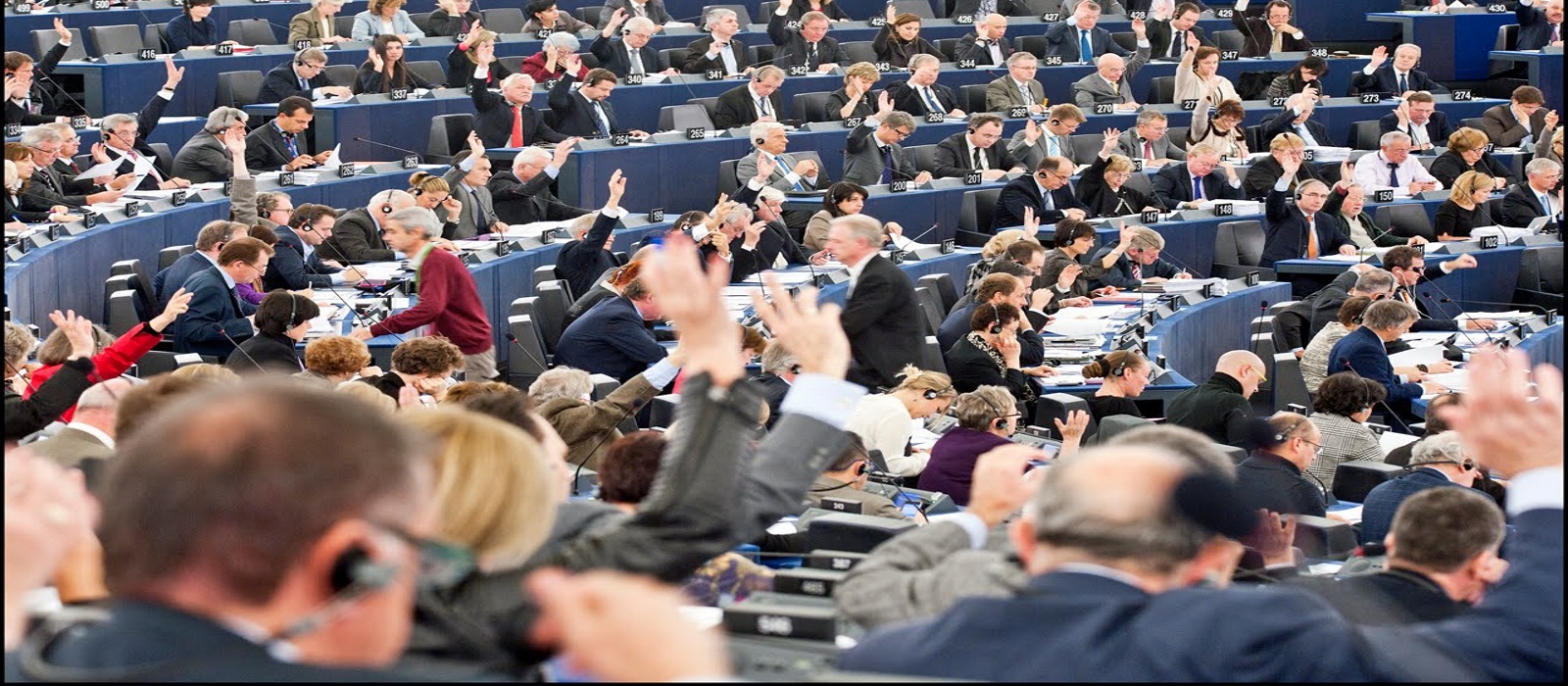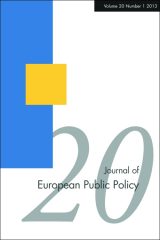The Jean Monnet Chair “Democracy in the European Union” supports Professor Hurrelmann’s research on the politicization, legitimation, and democratization of EU governance. Please find below a sample of recent research contributions that are relevant to the theme of the Chair. Professor Hurrelmann’s CV contains a full list of his publications.
Recently Published Work
European Union Governance and Policy Making is the first textbook on EU politics written specifically for university students in Canada. The book examines the political system of the EU (history, theories, institutions), specific policies, and some of the challenges that the EU currently faces. Geared toward Canadian readers who want to learn more about the European Union, the book integrates Canadian content and examples to demonstrate how Canada compares to the EU. The introduction presents three core themes for understanding the EU from a Canadian perspective, and each chapter returns to these, creating structure and coherence throughout the book.
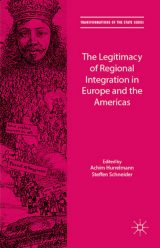 The Legitimacy of Regional Integration in Europe and the Americas, Basingstoke: Palgrave Macmillan, 2015 (co-edited with S.Schneider).
The Legitimacy of Regional Integration in Europe and the Americas, Basingstoke: Palgrave Macmillan, 2015 (co-edited with S.Schneider).
This edited volume brings together cutting-edge empirical research on the legitimacy of regional integration processes in Europe and the Americas. Across fourteen chapters, specialists of regionalism in Europe, North America and South America demonstrate that the societal legitimacy of regional governance deserves attention because it affects the development – and relative success – of regional integration projects such as the EU, NAFTA and MERCOSUR. Employing a mixed-method perspective, the contributors to this volume examine public opinion, political discourse and civil society mobilization surrounding regional institutions, identifying distinct legitimation patterns in each of the three world regions. In doing so, they demonstrate that comparative research on the legitimation of regional governance advances our understanding of the driving forces, obstacles and trajectories of regional integration more generally.
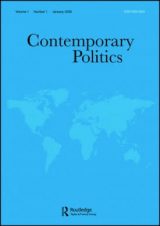 ‘Empirical Legitimation Analysis in International Relations: How to Learn from the Insights – and Avoid the Mistakes – of Research in EU Studies’, Contemporary Politics, Vol. 23, No. 1 (2017), 63-80.
‘Empirical Legitimation Analysis in International Relations: How to Learn from the Insights – and Avoid the Mistakes – of Research in EU Studies’, Contemporary Politics, Vol. 23, No. 1 (2017), 63-80.
The political legitimation (or de-legitimation) of the European Union (EU) has been the object of much empirical research. This paper argues that this research holds lessons that can inform debates about the legitimation of global governance more generally. After some conceptual clarifications, the paper presents a critical review of the literature on the EU’s legitimation, focusing on six crucial aspects – (1) the emergence and change of legitimation debates; (2) the arenas where legitimation occurs; (3) the role of the state as a reference point in legitimacy assessments; (4) the difference between various objects of legitimation; (5) the actors that trigger legitimation change; as well as (6) the relationship between legitimation and polity development. In each of these respects, the paper identifies important insights that can be gained from EU Studies, but also conceptual and methodological weaknesses in the EU-related literature that researchers working on other aspects of global governance should avoid. The paper closes by formulating a set of general desiderata for empirical legitimation research in International Relations.
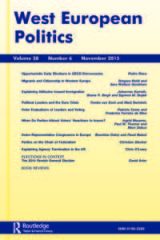 ‘The Eurozone Crisis and Citizen Engagement in EU Affairs’, West European Politics, Vol. 39, No. 1 (2016), 104-124 (co-authored with S. Baglioni).
‘The Eurozone Crisis and Citizen Engagement in EU Affairs’, West European Politics, Vol. 39, No. 1 (2016), 104-124 (co-authored with S. Baglioni).
While the Eurozone crisis has contributed to Europeanisation trends in the domestic politics of EU member states, it has not to the same extent triggered citizen mobilisation in EU-level democratic procedures. Theories that treat politicisation as an undifferentiated phenomenon tend to miss this important distinction. This article suggests that the weakness of supranational citizen mobilisation is linked to factors that restrict the citizens’ receptiveness for EU-related messages: limited knowledge of the EU and a weak sense of political efficacy, a discursive framing that conceptualises the EU as a consortium of member states rather than a supranational entity, and responsibility attributions for the crisis that de-emphasise the role of EU policies. These factors constitute cultural opportunity structures that influence politicisation patterns; they imply that politicisation is, under present conditions, more likely to result in a renationalisation than in a supranationalisation of EU politics.
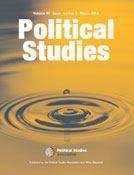 ‘The Politicization of European Integration: More than an Elite Affair?’, Political Studies, Vol. 63, No. 1 (2015), 43-59 (co-authored with A. Gora and A. Wagner).
‘The Politicization of European Integration: More than an Elite Affair?’, Political Studies, Vol. 63, No. 1 (2015), 43-59 (co-authored with A. Gora and A. Wagner).
A growing literature in research on the European Union (EU) claims that European integration has become comprehensively politicized in the EU’s population. The most convincing evidence for this assertion stems from research on political and societal elites – studies of party manifestos, interest groups’ activities, news media reporting and the like. By contrast, evidence on politicization trends in the broader citizenry is much more ambiguous. This article raises the question of whether politicization is more than an elite phenomenon. Based on a differentiated conception of politicization, it analyzes focus groups conducted with EU citizens in four member states. It shows that, for most citizens, only the fundamentals of European integration have gained political saliency, while the EU’s day-to-day activities remain largely non-politicized. In addition, patterns of politicization in the European population are conditioned by significant knowledge deficits.
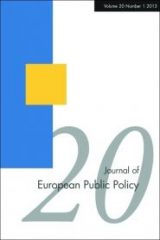 ‘Demoi-cratic Citizenship in Europe: An Impossible Ideal?’, Journal of European Public Policy, Vol. 22, No. 1 (2015), 19-36.
‘Demoi-cratic Citizenship in Europe: An Impossible Ideal?’, Journal of European Public Policy, Vol. 22, No. 1 (2015), 19-36.
The idea of demoi-cracy, which proposes to base democratic institutions not on one demos but on multiple co-existing demoi, has gained increasing popularity in debates about the democratization of the European Union. Existing models of demoi-cracy have, however, paid relatively little attention to the qualities that Europeans would need to possess in order to effectively participate in European politics as demoi-cratic citizens. This contribution seeks to identify these qualities; it then looks at empirical evidence to assess whether it is realistic that Europeans will, at least in the medium term, be able to live up to these requirements. While there are some indications that Europeans adapt their patterns of political participation to demoi-cratic requirements, the danger remains that institutionalizing a system of demoi-cracy would further accentuate the existing participatory inequalities.
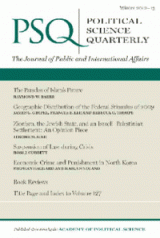 ‘Democracy beyond the State: Some Insights from the European Union’, Political Science Quarterly, Vol. 129, No. 1 (2014), 87-106.
‘Democracy beyond the State: Some Insights from the European Union’, Political Science Quarterly, Vol. 129, No. 1 (2014), 87-106.
ACHIM HURRELMANN examines academic debates about democracy in the European Union and asks which lessons they hold for the democratization of global governance more generally. He rejects arguments which claim that only states can be fully democratic. However, the democratization of global governance requires more than just institutional design, it also depends on attempts to educate and mobilize the citizens.
The news media is a major forum for the discursive legitimation of the EU. This article analyses media debates in the context of three attempts at reforming EU primary law in the past decade: the Nice Treaty; the Constitutional Treaty; and the Lisbon Treaty. Focusing on four member states – the United Kingdom, Ireland, Germany and Austria – our study shows that the EU’s legitimacy is discursively constructed according to distinct patterns, most of which are remarkably similar across countries and stable over time. In the context of the EU Constitution, legitimation debates became more intensive and more critical; however, these developments were largely reversed when the Lisbon Treaty was debated. This suggests that, in the media arena, the much-discussed politicization of European integration is an episodic occurrence, rather than a unidirectional trend.
